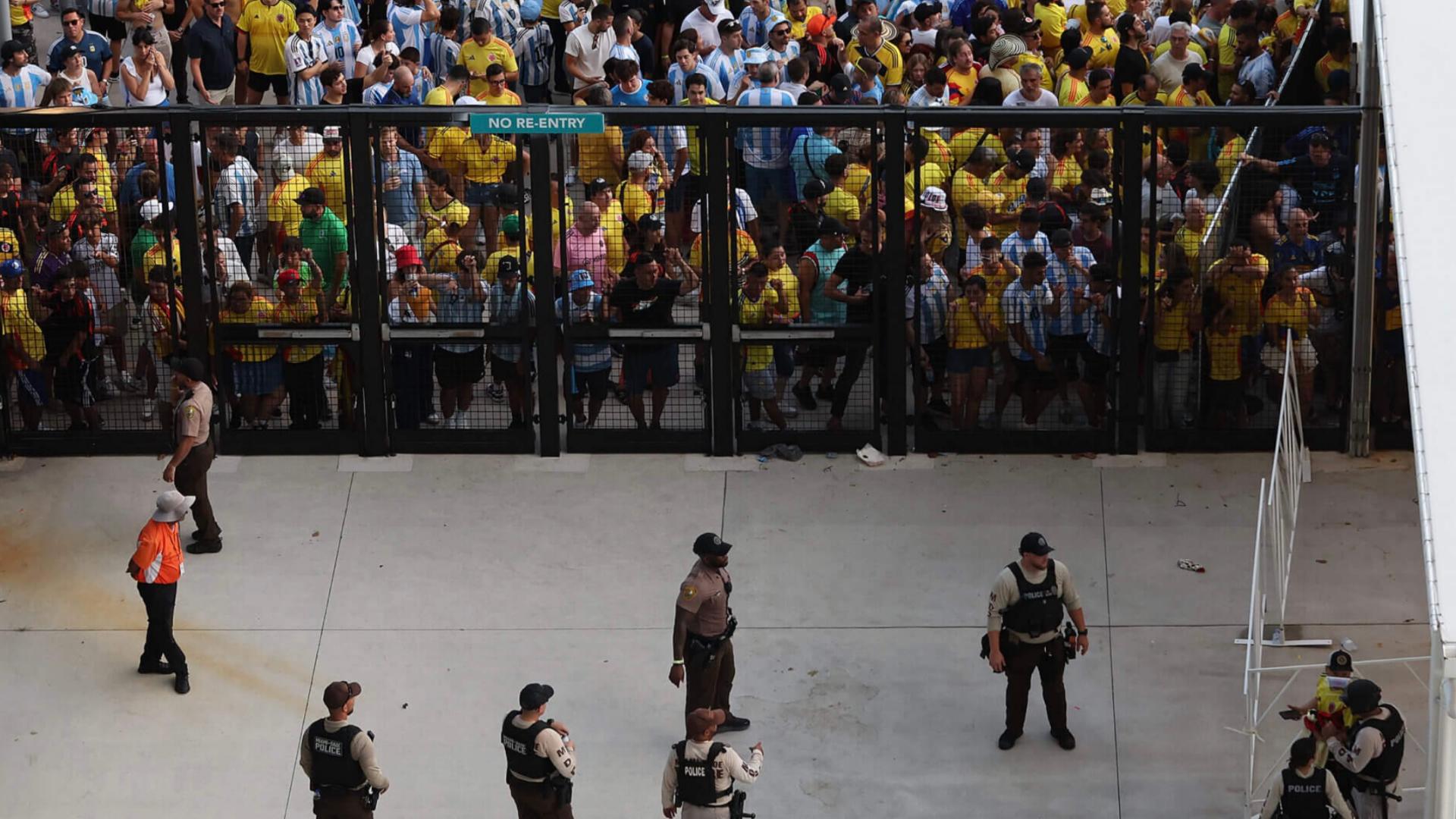 Getty
GettyThe mismanagement by the football federation transformed a momentous occasion into a worrisome summer for soccer in the United States.
It became abundantly clear over three hours before kick off that something very troubling was developing at Hard Rock Stadium before the Copa America final in Miami Sunday night. While one group of spectators rushed the stadium, other fans were stuck outside gates – entrances that should have already been opened and crowds thickened before the barriers.
As emotions ran high, a small group of fans sneaked in while the media members were granted access. The scheduled 8 p.m. kickoff for the Argentina-Colombia match was delayed to 8:30, then further pushed to 8:45. However, the delay continued, and 8:45 turned into 9:15. Finally, at 9:22, Lionel Messi made his first pass to his teammate.
Some fans started climbing over fences to get in. Multiple reports said that an estimated 7,000 people without tickets gained entry to the stadium, and prior to kickoff, fans were crowding the aisles and walkways. Security personnel tried to clear those areas once the game started, and then were checking to see if fans without seats had tickets. Police officers were seen placing handcuffs on a fan with a Colombia flag on a ramp that leads to the stadium’s seats.
Miami-Dade police were reported by USA Today to have made “10-15 arrests” prior to kickoff. Miami-Dade Fire Rescue arrived to offer assistance at the scene, although tensions had already escalated.
During the game, Miami-Dade County Mayor Daniella Levine Cava and Chief Public Safety Officer James Reyes made an announcement stating that over 550 police officers were assigned to the stadium detail, along with additional personnel from nearby departments.
In their statement, they emphasized the need for clarity: “It is imperative to acknowledge that this situation should never have occurred and must be prevented from recurring,” they expressed. They pledged to collaborate with stadium authorities to promptly conduct a comprehensive analysis of the events that transpired that evening. The aim is to establish essential protocols and policies to be implemented in all forthcoming games.
The final was marred by a series of problems that had been building up throughout the 32-match tournament. These issues ranged from discontent regarding the playing surfaces to disapproval of the officials and worries regarding the safety of the players.
And in an unfortunate reality, the Copa America final kicked off in a way befitting the events of the last month. This has been a seminal moment for soccer in the United States. This is, effectively, a launchpad for the 2026 World Cup, the dress rehearsal before the primetime show. And while there have been many points of excitement – good soccer and passionate fans chief among them – it has been ultimately marred by questionable decisions terrible mismanagement.
What should have been a celebration of soccer's staying power in North America will now be remembered for CONMEBOL's failures as organizers as much as for Argentina's ultimate victory on the pitch. FIFA must take note ahead of the 2026 World Cup.

